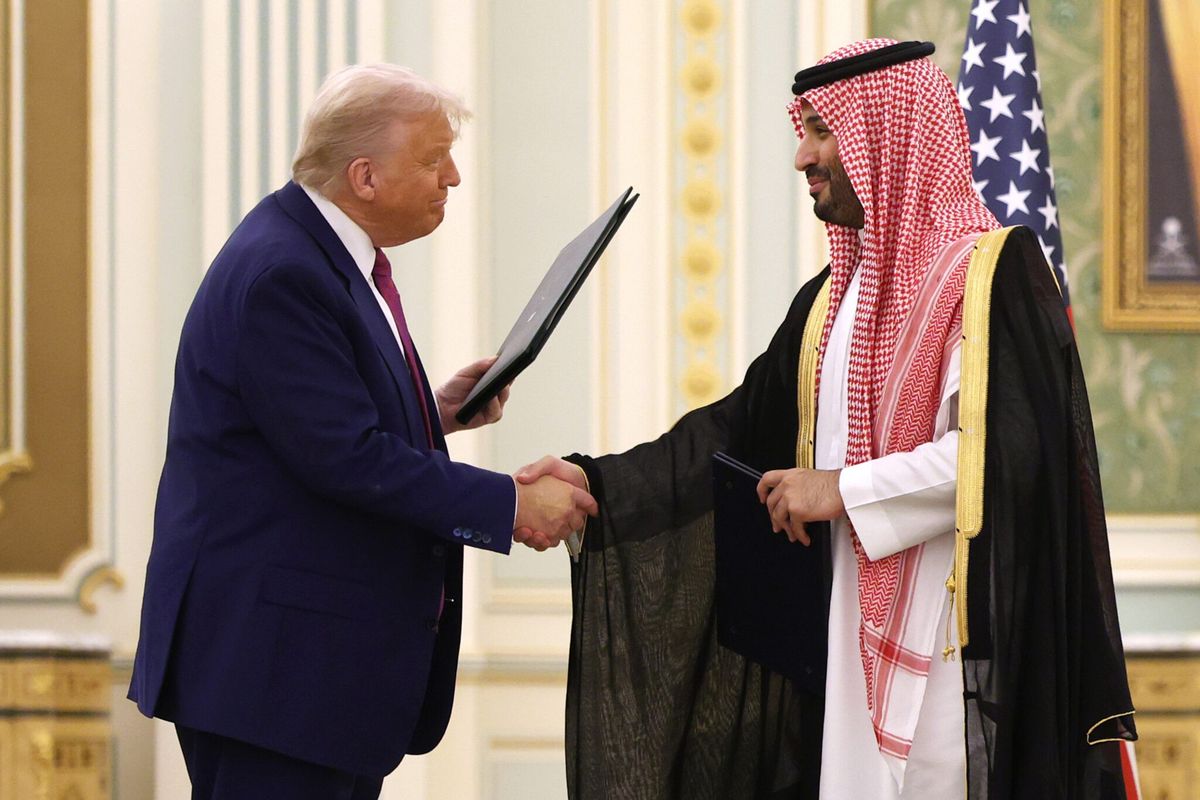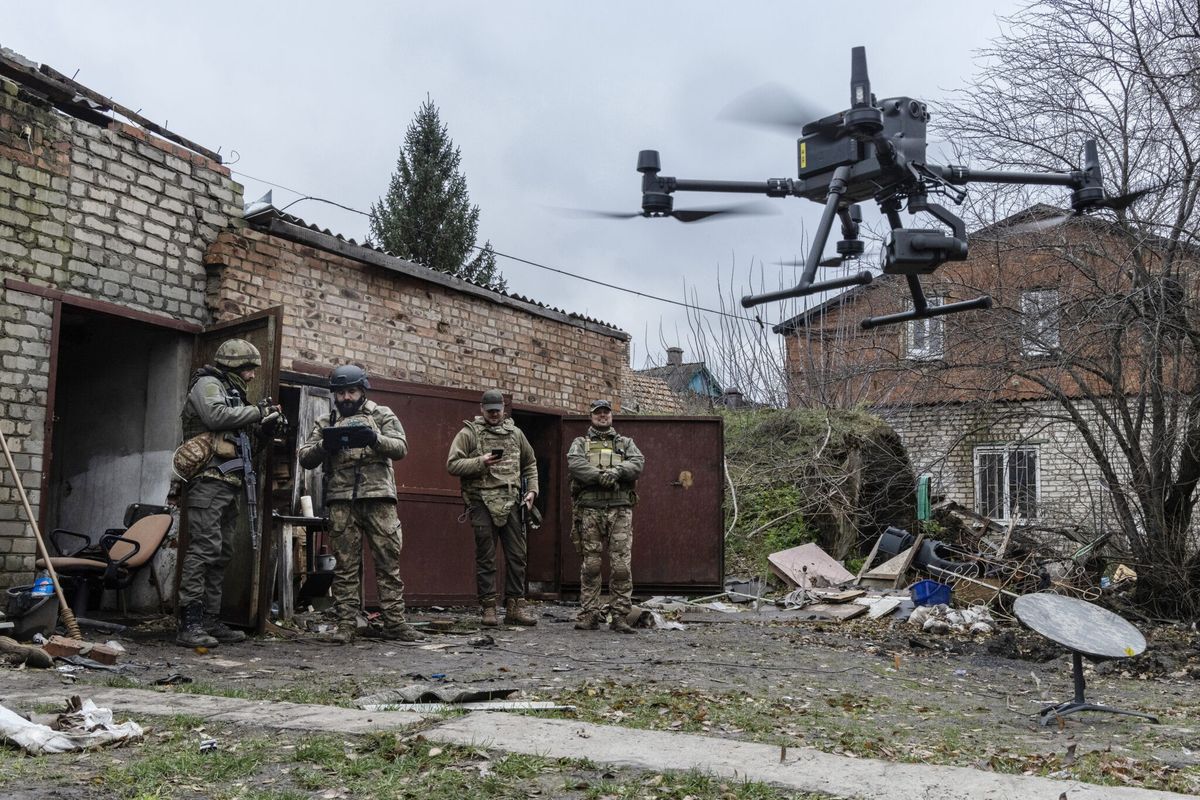OPINION — “To say it changed my life was an understatement; just every day being confronted with that heavy human cost of war…I was the brigade’s surgeon operations officer, basically. The very first task I had every day was to go down a list of names of every single American who had been injured in combat the previous 24 hours.”
That was Tulsi Gabbard, President-elect Donald Trump’s nominee to be Director of National Intelligence (DNI), speaking during a two-hour interview on the Shawn Ryan Show and Podcast that was taped in October and has since drawn some 929,000 viewers.
Gabbard continued: “We had close to, I think, around 2,500, 2,600 from our Hawaii National Guard in brigade combat teams in four different battle stations in Iraq in 2005. I went through that list every morning looking to see if there were any of our [Hawaiian National Guard] soldiers…We didn’t always know, who are they, where are they, are they getting the care they needed. And so I was tracking them down…Did they need to be evacuated immediately…I could make things happen and inform our commander of every single, by name, one of our troops.”
That 18-month Iraq experience, Gabbard has said in many interviews, left her “in the most real and human way understanding the cost of war.”
Gabbard’s anti-war views have influenced her public positions since, and they are among many subjects that should be explored during Senate confirmation hearings on her appointment to be DNI, a job that would have her overseeing development of the Intelligence Community (IC) budget and coordinating intelligence collection, analysis, and production across the 18 agencies that make up the IC.
As DNI, Gabbard would also serve as the primary advisor to the President, National Security Council, and Homeland Security Council on all intelligence matters related to national security.
Gabbard’s road to the nomination
Gabbard, 43, is still a Lieutenant Colonel in the Hawaii National Guard, and from 2013 to 2021 she was a Democratic Party Representative for Hawaii's 2nd congressional district. In 2020, she ran for the Democratic nomination for President, and then supported the candidacy of Sen. Bernie Sanders (D-Vt.), before she left the Democratic Party in 2022.
Gabbard announced her support for Trump in August 2024, campaigned for him thereafter, and joined the Republican Party in October. Trump named her as his DNI choice on November 13, saying, “I know Tulsi will bring the fearless spirit that has defined her illustrious career to our Intelligence Community, championing Constitutional Rights and securing peace through strength.”
Most criticism of Trump’s choice of Gabbard has focused on her past statements and actions related to Syria and Russia, which I will discuss below. There are also questions to be raised about her lack of experience in the intelligence field, as well as in matters such as supervision of setting the IC budget, which for fiscal 2025 was at $73.4 billion.
Questions for the nominee
At her confirmation hearing, Gabbard ought to be asked about some views she gave during the Ryan interview and has repeated elsewhere.
For example, she said that the “Deep State” or “National Security State” had created complexities that are “not good for our country,” such as “why we are not going after al-Qaeda in Syria. It’s not complicated. There’s a reason for it. Tell the American people what the reason is.”
More than six years ago, on April 13, 2018, Gabbard asked a similar question of then-Defense Secretary James Mattis at a House Armed Services Committee hearing and was told that al-Qaeda at that time was located in a part of Syria where U.S. forces were not present. As Mattis pointed out, the American troops operated “through our partner forces there [in Syria, who] do not have the capabilities to move into that region.”
I am told that the same reason Mattis gave six years ago is true today; when it comes to al-Qaeda, its Syrian affiliate, al-Nusra, operates in a region outside the U.S. ground operations capability. In addition, the State Department issued a statement on October 17, 2023 that U.S. forces in northwest Syria had been “providing non-lethal assistance to units of the Free Syrian Army and Free Syrian Police who protected communities resisting both AQ [al-Qaeda], extremist, and [Assad] regime influence and control.”
Meanwhile, the State Department said, “In northeast Syria, the United States is working with our partners in the Global Coalition to Defeat ISIS, to support the enduring defeat of ISIS through stabilization efforts in liberated areas.”
By now, Gabbard also should be aware there are many Islamist groups in Syria that the U.S. considers terrorists, but American troops are not fighting to eliminate them. Yet she continues to raise the same question about al-Qaeda.
The U.S. “war machine”
Another oft-repeated Gabbard view that needs further exploration is one she stated on November 20, during an interview on Dr. Phil’s podcast.
Gabbard said, “Our present-day approach to foreign policy that has for too long largely been interventionist, in the sense of being let’s go out and be the policeman of the world and go and topple dictators we don’t like and protect the ones we do like, and try to build little mini Americas around the world and not really making these decisions…based on the best interests of the American people and our security.”
She went on: “The war machine in Washington is the way that they assume we must exercise that leadership is through the use of either use of economic warfare or dropping bombs, rather than recognizing that peace through strength is multifaceted and requires the kind of direct engagement and diplomacy that we have seen over time from leaders like President Kennedy with Khrushchev and with Ronald Reagan, and quite frankly with President Trump when he was first in office.”
As an example, Gabbard referred to August 2013, when President Barack Obama announced he was going to attack Syria in response to an Assad regime chemical attack on Syrian rebels. Gabbard said Obama’s actions helping Syrian rebels were the “beginning of what would be another regime-change war.” As a new member of the House Foreign Affairs Committee, she said she had conducted research and concluded that “unfortunately they [the Obama administration] had no plan for what would happen next; no plan for what any retaliatory plan would look like against us or our friends in the region.”
As a result, Gabbard said, she came out publicly against Obama’s plan. “I got a call within 24 hours,” Gabbard said, and after recognizing she had some experience in the Middle East area, the White House official “admonished me for the audacity to go against my President…All they cared about was loyalty to President Obama and the party rather than what’s in the best interest of the people.”
A trip to Damascus
Perhaps most controversial for Gabbard was her 2017 meeting with Syrian President Bashar al-Assad, who was then and still remains a dictator accused of widespread human rights violations. Gabbard later defended the meeting, telling MSNBC that "Assad is not the enemy of the United States, because Syria does not pose a direct threat to the United States."
When then-President Trump in April 2018 sent U.S. aircraft and ship-based missiles against Syrian sites in reprisal for the Syrian military’s chemical attacks against Syrian rebels in Douma, Gabbard joined the Assad government and its allies in questioning whether chemical attacks had really taken place.
In 2020, Gabbard released her own Reports on Chemical Attacks on Syria in which she said, “There is evidence that both the Syrian government of Bashar al-Assad as well as the armed opposition groups aligned against him have used chemical weapons (CW) during the Syrian war. However, I remain skeptical about two particular CW attacks, one at Khan Sheikhun on April 4, 2017, and the other at Douma on April 7, 2018. Both attacks occurred in towns under the control of al-Qaeda-linked opposition forces.”
Here again is another line for questioning at the confirmation hearing: why did she choose to believe opponents of the U.S., in this case the Assad government, more than U.S. intelligence, even when Trump was president?
Classified information – and nuclear weapons
Another set of questions, more relevant to the DNI job, would be to ask Gabbard about two bills she introduced back in September 2020, both of which involved the publication of classified information. The first would have allowed defendants in Espionage Act cases to release classified U.S. documents in their defense. The case at that moment involved Julian Assange, who through his WikiLeaks website had been charged with violation of the act.
The other bill related to Edward Snowden, who had been charged with espionage for leaking highly classified National Security Agency electronic intercept programs and had fled to Moscow. Gabbard’s bill would have expressed “the sense of the House of Representatives that the Federal Government should drop all charges against Edward Snowden.”
One other possible area for questioning came up during Gabbard’s interview two months ago on The Tucker Carlson Show. When answering Carlson’s question about nuclear weapons, Gabbard said that “We are closer to the brink of nuclear war than ever before in our country’s history.”
She went on, “I was warning about this back in 2019, 2020 when I was running for President, talking about this threat if we are considering to wage what I called the new Cold War. We are continuing to increase tensions, to heighten tensions with other nuclear countries in the world, the inevitable outcome of that is nuclear war.”
I doubt that anyone who was alive during the October 1962 Cuban Missile Crisis or has read that history thinks that today’s nuclear situation approaches where the U.S. was 62 years ago. Russian President Vladimir Putin has been rattling the nuclear saber since his February 2022 invasion of Ukraine, and Kim Jong-un has been testing long-range missiles, but none of that comes close to the fear that existed during the Cuba crisis.
I raise her overstatement, and these other questions, because should she become the DNI, she would be the one telling the President what the intelligence is and what it may mean.
The Cipher Brief is committed to publishing a range of perspectives on national security issues submitted by deeply experienced national security professionals. Opinions expressed are those of the author and do not represent the views or opinions of The Cipher Brief.
Have a perspective to share based on your experience in the national security field? Send it to Editor@thecipherbrief.com for publication consideration.
Read more expert-driven national security insights, perspective and analysis in The Cipher Brief














